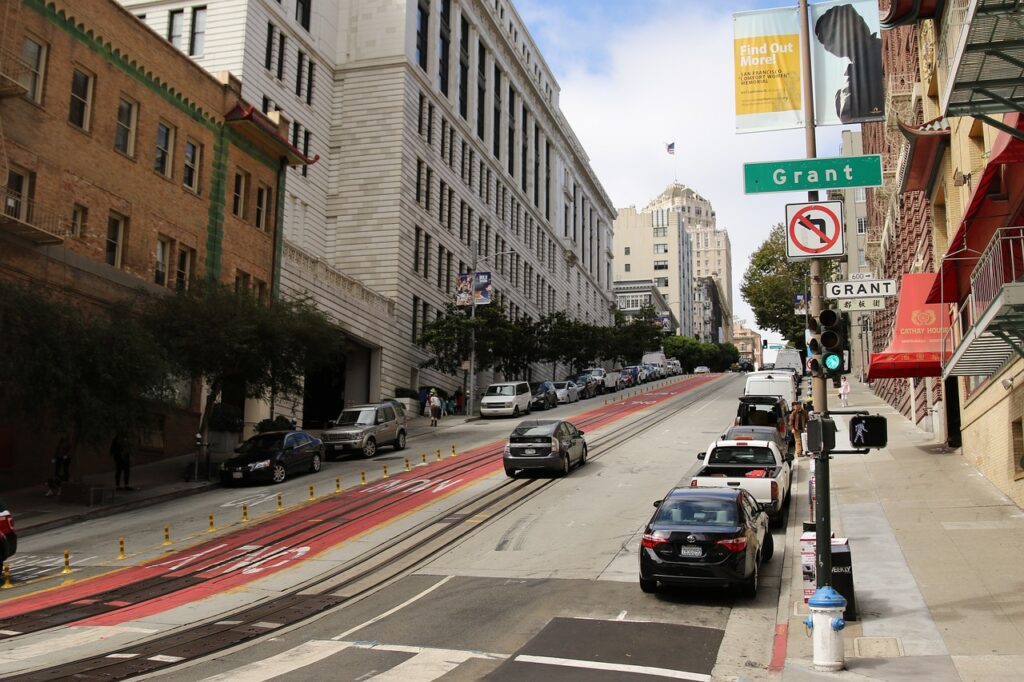Auto insurance in California is becoming increasingly difficult to obtain, as insurance agents report challenges in finding quotes for clients who would have easily secured coverage just a year ago, news reports states.
According to an article in the San Francisco Chronicle, inflation and other factors are taking a toll, leading to concerns that the dwindling availability of auto and home insurance in the state may be on a downward spiral.

Mike D’Arelli, the executive director of the American Agents Alliance, an association of insurance agents that provides access to insurers as a wholesaler, expressed his concerns about the situation. “Never in my career have I heard from so many insurance agency owners and consumers, desperate to buy auto or home insurance, yet unable to purchase it due to lack of availability,” he stated in an email to The Chronicle.
The issue of insurance availability has become more pronounced with State Farm’s recent announcement that it will stop writing new homeowners’ policies in California. This decision has raised concerns about diminishing insurance options in the state, particularly in high-risk wildfire areas. The Chronicle has also confirmed that Allstate quietly ceased writing new policies for homeowners, condos, and commercial properties last year.
Auto insurance issues began at the beginning of 2023
While California’s insurance commissioner Ricardo Lara has attributed the challenges in homeowners’ insurance to climate change impacting coverage across the country, the same connection cannot be made for auto insurance. Insurers attribute the difficulty to what they perceive as dysfunctional regulation, while consumer advocates accuse insurers of withholding coverage as a political tactic.
The pullback from offering auto insurance started about six months ago and has now reached a point where no insurers will write auto insurance in California through the American Agents Alliance, according to D’Arelli. Safeco recently stopped offering auto insurance through the association, and Travelers suspended its services through D’Arelli’s group and 1,000 other entities approximately six months ago.
When asked about the situation, Safeco did not confirm whether the company is slowing down its business in California but stated that it continues to offer auto insurance in the state. Travelers responded by saying that the number of agents affected by their temporary action on new business is significantly less than 1,000.
Laine Caspi, an insurance agent in Los Angeles who works with Progressive and Mercury, shared a similar experience. However, the carriers mentioned could not be reached for comment.
Auto carriers are now taking on very little business and implementing review periods ranging from 10 to 30 days before coverage becomes effective, according to Caspi. She recounted an instance where she tried to quote a client with a clean driving record except for a non-fault accident 2½ years ago, only to have the business declined. Obtaining coverage has become increasingly challenging unless the record is flawless.
Auto insurers increasingly demanding with customers
Insurance agents also noted that auto insurers are demanding new customers to pay in full instead of offering monthly or quarterly payments. Additionally, existing customers who miss a payment often have their plans cancelled without a grace period, leaving many Californians struggling to find new coverage in the market.
D’Arelli stated, “These sorts of tactics to prevent the agent from wanting to submit business or slowing things down are pervasive. They are everywhere.”
Jerry Conrey, an insurance broker in Orange County, observed a pullback in business from several insurance companies, including Safeco, Mercury, Nationwide, Geico, Chubb, and Progressive, especially for high-valued vehicles. Insurers are taking on a larger risk with these vehicles. However, the carriers mentioned could not be immediately reached for comment.
Inflation has contributed to rising costs associated with auto accidents, such as car parts and hospital bills, according to insurance agents. They also pointed out that California’s insurance commissioner, Ricardo Lara, did not approve any rate increases for auto insurers from May 2020 to October 2022. Progressive’s CEO cited this as a reason for slowing business in California during an earnings call last year.
The rate moratorium was implemented by Lara to address concerns of overcharging consumers during the early stages of the pandemic when reduced driving occurred due to stay-at-home orders. Rex Frazier, the president of the Personal Insurance Federation of California, an advocacy association of personal injury and casualty insurers, attributed the current issues in the auto insurance market to the rate moratorium. Frazier suggested that the commissioner should consider a “triage approach” to the rate requests awaiting approval.
Tough regulations on drivers to obtain policies in California
Consumer advocate Harvey Rosenfield, known for writing Proposition 103, a measure requiring insurers to have rate increases reviewed and approved by the commissioner, argued that his organization has found the commissioner approved £1 billion in “unjustified” rate hikes for auto insurers in 2023 alone. Rosenfield accused insurers of instigating a crisis and creating a shortage in the marketplace as a form of resistance against Prop. 103.
By California law, all auto insurers are required to offer a policy to drivers with one or fewer violation points in the past three years. However, insurance commissioner Lara acknowledged that the department has received reports of insurers employing “delay tactics” even when offering policies to so-called “good drivers.” Lara urged all affected agents to contact the hotline so that the department can investigate these issues.
The commissioner refuted claims that the rate moratorium is responsible for the current challenges in the auto insurance market. According to Lara, there was no moratorium, as the department received only six rate increase requests from companies representing less than 1% of the private passenger auto insurance market between the start of the pandemic and November 2021. The significant increase in filings did not occur until June 2022, with the first approval coming in October. Lara attributed the problems in the auto insurance marketplace to global inflation and supply chain issues affecting the availability of car parts.
Lara said the need to retool the thriving insurance market to adapt to the changing economic paradigm. However, insurance broker Conrey expressed concerns about the sustainability of business in both the homeowners and auto insurance sectors. He highlighted that his agency is losing revenue daily, as expenses continue to rise, and urged action to address the issue promptly.
“Maybe we could have this problem fixed by this time next year, but it’s got to start now. If not, this market will get worse before it gets better,” Conrey warned.
Source: San Francisco Chronicle










